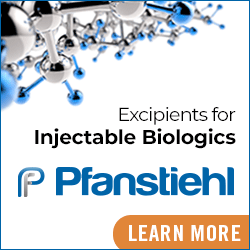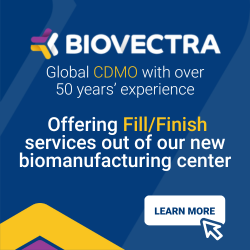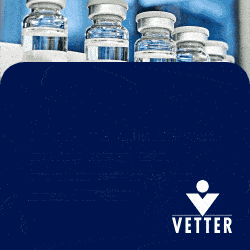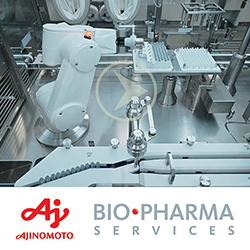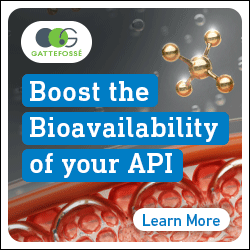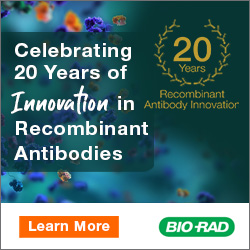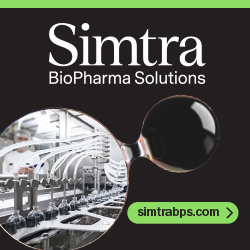The Pistoia Alliance Calls on Life Science & Healthcare Ecosystems to Restructure Around Patient Centricity
Members of the Pistoia Alliance, a global not-for-profit that advocates for greater collaboration in life sciences R&D, have called for the life science and healthcare industries urgently to restructure around patient centricity. More than 150 attendees meeting at the Pistoia Alliance’s annual European conference in London agreed that the sector is undergoing a significant shift. In the wake of the global pandemic and driven by continual advances in technology, the voice of the empowered patient is on the rise. The Pistoia Alliance is now calling for greater collaboration between links in the biopharmaceutical value chain to support and advance this shift and ensure that patient centricity is embedded right from early discovery to healthcare delivery.
Cristina Ortega Duran, Chief Digital Health Officer R&D for AstraZeneca, commented in a keynote address, “We are living through the largest transformation in human history. Technology is growing exponentially and that’s difficult to comprehend. Change doesn’t happen at the pace of technology development. Industries take a longer time to change than technology because changing behaviour is much harder. But the pandemic has changed behaviours. Billions of people changed the way they interact with healthcare in a matter of months. In this new era of targeted precision medicine, we all play a role in creating the patient-centric future that patients deserve.”
Across panel discussions and breakout sessions around the application of patient centricity in drug development, attendees debated the structural and operational changes required and considered how the Pistoia Alliance will help accelerate these changes. One area that emerged is the need to listen closely to patients and work alongside them. This includes adjusting the language and terminology used to refer to people living with diseases and to shape new initiatives around engagement and involvement. Attendees also discussed the pressing need to maintain an open attitude to gathering and sharing data that can be applied to improve outcomes. This ranged from digital monitoring of patients, designing clinical trial protocols that reduce patient burden, sharing data with both co-researchers and patients, gathering more data on rare diseases, and employing data to drive AI and machine learning.
Panellist Thomas Hach, Executive Director Patient Engagement Cardiovascular, Renal & Metabolism, Novartis, commented, “Patients will be the biggest disruptors in health care, now and in the future. We better listen to them, and really listen to them. We need to show the impact and the value that data generates for participants in a trial, and we have to do that early. Because sometimes we do that too late, and we can’t properly take the advice of patients. Let’s have the people living with the disease push us and challenge us because that’s how we make research better. In the end, we want to achieve something together. And together, it’s always better.”
To facilitate the urgent restructuring of the life science industry around patients, the sector must build on the rapid progress that has been made in digital healthcare during the global pandemic and translate this success to early phase R&D. This will mean collaborating with patient groups to learn their concerns and preferences and ensure the therapies that make it to market suit their needs and are affordable. The Pistoia Alliance is one of the few forums that enables biopharmaceutical organisations to connect directly with research-led patient organisations (R-LPOs) in this way. This engagement allows companies to work with R-LPOs in a far more strategic way, developing products and supporting clinical studies that are specifically designed around patients and are relevant to them.
Thierry Escudier, a Strategic Theme Lead at the Pistoia Alliance, commented, “In the last two years we’ve witnessed huge advances in digital healthcare, now we must take what we have learned and apply this mindset to early phase R&D and clinical settings, where there is plenty of work for us to do. We must close the gap between researchers and data scientists working on target selection, and patients actually living with the condition. By putting patients at the heart of our work from “day one”, we can deliver better therapeutics and improve patient outcomes. Our projects at the Pistoia Alliance will offer opportunity for biopharmaceutical organisations and R-LPOs to work directly together in support of this aim.”
The Pistoia Alliance is supporting its members to engage in collaborative patient-centric initiatives as part of its strategic theme, Empowering the Patient in R&D. Launched in October 2021, this theme includes all Alliance projects related to patient centricity. The goal of these projects is to build trust in the industry by engaging patients to play a role in co-designing research and services. Projects will decrease the burden on the patient, encourage shared decision-making, and tackle ethics and privacy issues to build trust. It will also find opportunities to strengthen patient-pharma relationships to ensure early collaboration and ways to safely use patient-generated data to develop more meaningful clinical endpoints when designing clinical trials. Organisations interested in becoming involved with Empowering the Patient in R&D activities should send an email to Thierry Escudier at ProjectInquirees@PistoiaAlliance.org. For more information on the Pistoia Alliance, visit https://www.pistoiaalliance.org/.
The Pistoia Alliance is a global, not-for-profit members’ organization made up of life science companies, technology and service providers, publishers, and academic groups working to lower barriers to innovation in life science and healthcare R&D. It was conceived in 2007 and incorporated in 2009 by representatives of AstraZeneca, GSK, Novartis and Pfizer who met at a conference in Pistoia, Italy. Its projects transform R&D through pre-competitive collaboration. It overcomes common R&D obstacles by identifying the root causes, developing standards and best practices, sharing pre-competitive data and knowledge, and implementing technology pilots. There are currently over 200 member companies; members collaborate on projects that generate significant value for the worldwide life sciences R&D community, using The Pistoia Alliance’s proven framework for open innovation.
Total Page Views: 679






